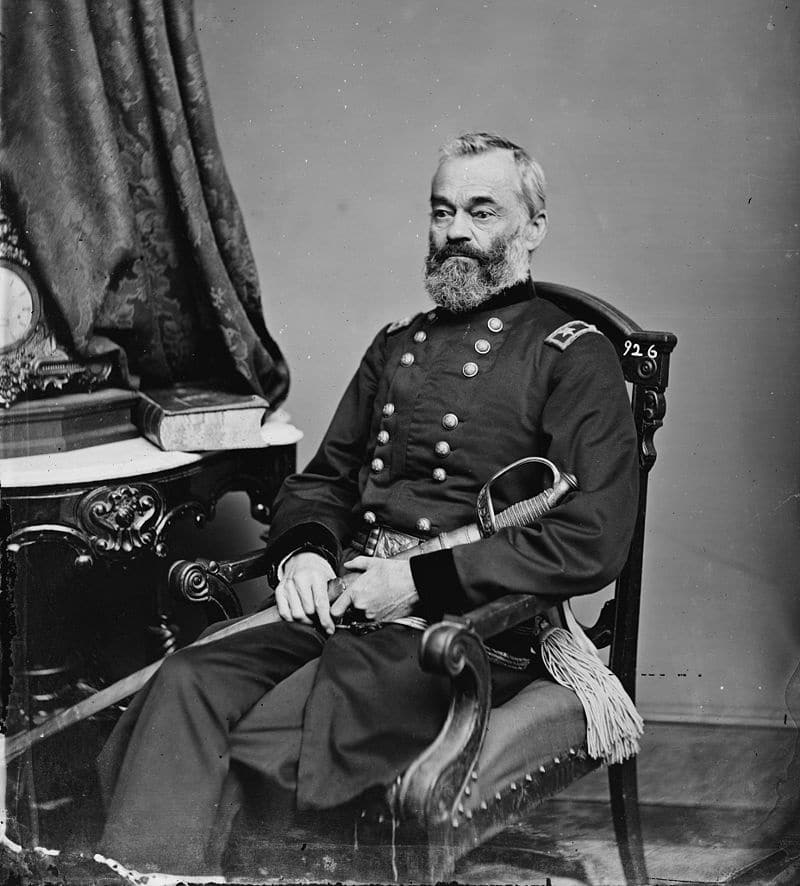Samuel Heintzelman was an officer for the Union Army during the Civil War and also served in the military during the Seminole War, Mexican-American War, Yuma War, and the Cortina Troubles.

Due to his experience, his advice was leaned on during the early months of the war. He continued after the Civil War in the military and retired with the rank of Major General.
Early Years and Career
Samuel Heintzelman was born in Manheim, Pennsylvania, to Peter and Ann Elizabeth Grubb Heintzelman.
He graduated from the United States Military Academy in 1826 and was given the commission of a brevet second lieutenant.
He served in multiple capacities on the Northern Frontier.
March 4, 1833, he was appointed captain in the Quartermaster's Department and remained in Florida.
In 1847, he fought in the Mexican-American War in the army of Winfield Scott (Hero of the War of 1812 and Mexican War). He was appointed brevet major.
After the war, he served in California with his border defense for several years.
Major Heintzelman led the Yuma Expedition from San Diego. He was successful in establishing peace with the Yuma tribe and was promoted to the rank of lieutenant colonel.
In 1859, he defeated Juan Cortina's force during the First Cortina War.
Samuel became the first president of the Sonora Exploring and Mining Company, which established the mining town in southern Arizona.
The Civil War
At the outset of the Civil War, Samuel was promoted to colonel of the 17th US Infantry and brigadier general of volunteers in May 1861.
He was wounded during the First Battle of Bull Run while leading a division.
Heintzelman was in command of the 2nd Michigan Infantry regiment that was responsible for the raid and devastation of Phick Church.
After President Lincoln organized the Army of the Potomac into corp, Samuel Heintzelman was given command of the III Corps during the Peninsula Campaign under General George McClellan.
He saw action in Yorktown, the Second Battle of Bull Run, Fair Oaks, the Battle of Glendale, and the Seven Days Battle.
His corps took heavy losses during the Second Battle of Bull Run, and he took criticism for his lack of aggression.
He spent the remainder of the war commanding the Washington defenses.
In 1865, Heintzelman reverted to the rank of colonel in the regular army. He served on army boards of inquiry and on occupation duty in Texas as part of Reconstruction.
He retired on February 22, 1869, and was granted a promotion to major general.
He died in Washington, D.C. on May 1, 1880.
